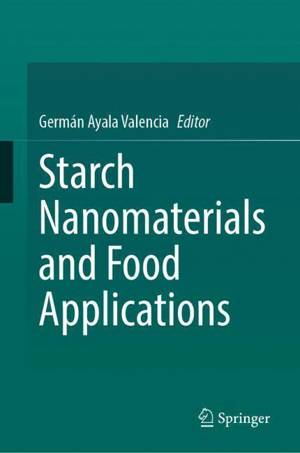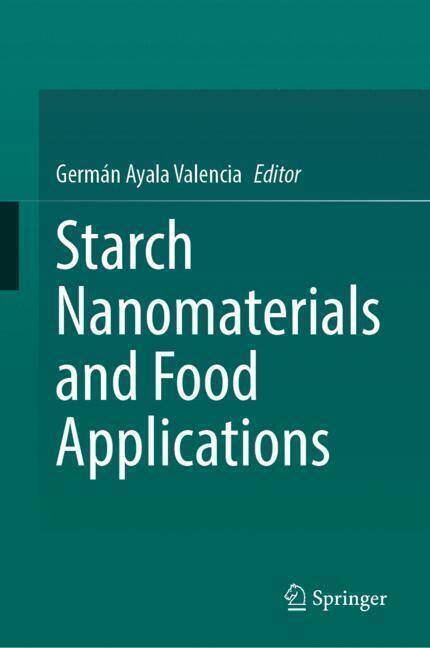
- Retrait gratuit dans votre magasin Club
- 7.000.000 titres dans notre catalogue
- Payer en toute sécurité
- Toujours un magasin près de chez vous
- Retrait gratuit dans votre magasin Club
- 7.000.000 titres dans notre catalogue
- Payer en toute sécurité
- Toujours un magasin près de chez vous
Starch Nanomaterials and Food Applications
Description
Starch nanomaterials can be classified as nanocrystals, nanoparticles, nanofibers, nanomicelles and nanovesicles which are produced by both "top-down" and "bottom-up" approaches. Starch nanomaterials feature advanced structures with different physicochemical properties than those found in native starches. In the food industry, starch nanomaterials can be used to reduce spoilage and oxidation in food products or as shell wall materials for encapsulating hydrophilic and hydrophobic compounds, as well as to improve physicochemical properties in foods and food packaging.
Starch Nanomaterials and Food Applications presents an exhaustive analysis of the most recent advances in the production of starch nanomaterials and their use in food applications. This text brings together recent advances in the production and food applications of starch nanomaterials. All of the main starches will be covered, including nanocrystals, nanoparticles, nanofibers, nanovesicles, nanomicelles. The food applications of starch nanomaterials are covered in full, including adsorptive and encapsulating materials, emulsifiers and texturizing
materials and functional food and packaging ingredients. A further section focuses on the human and environmental impacts of starch nanomaterials.
Spécifications
Parties prenantes
- Editeur:
Contenu
- Nombre de pages :
- 256
- Langue:
- Anglais
Caractéristiques
- EAN:
- 9783031600852
- Date de parution :
- 02-07-24
- Format:
- Livre relié
- Format numérique:
- Genaaid
- Dimensions :
- 156 mm x 234 mm
- Poids :
- 562 g






